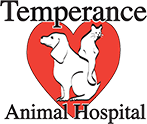February is Veterinary Dental Health Awareness Month
February has been designated as Veterinary Dental Health Awareness Month. We hear a lot of discussion about the importance of Home Dental Care (brushing, gels, tartar control treats, etc.) for our dogs and cats. Did you also know the important role that a Professional Dental COHAT plays in your pet’s oral health?
What the heck is a Dental COHAT you ask??? Dental COHAT stands for:
Comprehensive
Oral
Health
Assessment
&
Treatment
A Dental COHAT is very similar to what you and I expect to receive at our Dentist’s office (a thorough oral exam, scaling, cleaning, polishing and radiographs). Even though we brush our teeth 2-3 times per day, floss regularly (at least when asked by our Dentist) and keep up on our own Home Dental Care, we still expect to receive additional professional care on a regular basis. Our pets are no different, even with optimal Home Dental Care they still need to have a professional evaluation performed on a regular basis. The main difference between our pets and us is that our pets do have to undergo an anesthetic event to properly have this procedure performed.
Based on an oral examination as part of your pet’s regular Wellness Care, your Veterinarian can give you an idea about the extent of dental disease present and make recommendations about further evaluations and treatments needed. However…a complete assessment of the mouth is impossible to perform without anesthesia, thorough probing and examination of the teeth and gum lines, and ideally dental radiography (X-rays).
Understandably, owners of pets are concerned whenever anesthesia is required for their pet’s care. We understand this concern and do everything within our power to address this concern. Although anesthesia will never be 100% risk free…using pre-anesthetic blood screening tests, IV catheterization and fluid support, modern anesthetic protocols and professional monitoring while under
anesthesia we can greatly minimize the risk involved for your pet.
You may be tempted to seek out the alarming trend of a procedure referred to as “Anesthesia Free Dentistry”. Sounds great, doesn’t it? All the benefits of a Dental Cleaning without the need for anesthesia! No wonder it is becoming more and more popular. Unfortunately, this option is too good to be true. It is important to note that neither the American Veterinary Medical Association nor the American Veterinary Dental College endorse or recommend “Anesthesia Free Dentistry” for multiple reasons. You can check out http://www.avdc.org/dentalscaling.html for all of the details, but we will give you a quick summary. First, the dental tartar on your pet’s teeth is very firmly adhered to the surface of the enamel. Scaling to remove this tartar requires the use of both ultrasonic/piezo-electric power scalers plus sharp hand instrumentation.
The risk of significant oral damage in an awake patient is just too great! Second, appropriate dental scaling must include scaling the surfaces of the teeth both above and below the gum line followed by dental polishing. In fact, the most critical component of this scaling procedure is that which lies below the gum line. This is where we must intervene in order to prevent and/or treat Periodontal Disease (Bone Disease). Removal of dental tartar only on the visible surfaces of the teeth is purely a cosmetic procedure and provides very little (if any) health benefit. Finally, a complete oral examination requires evaluation of all of the surfaces of the teeth… even the ones facing the tongue. As you can imagine, this is nearly impossible in most awake pets. Without this important step many areas of disease and discomfort are likely to be missed.
With the understanding that a significant portion of dental pathology lies underthe gum line, Temperance Animal Hospital is proud to announce the addition of Digital Dental Radiography (X-rays) to our Dental COHAT procedures. By taking these x-ray images we can now more thoroughly assess the health of your pet’s mouth. Looking for areas of bone loss around the tooth roots and other signs of pathology can help us to better recommend the appropriate treatments for your pet…with the ultimate goal being a healthy and comfortable mouth.
Based on the Dental COHAT findings, we can determine if a diseased tooth is potentially salvageable and recommend treatments such as: Root Planing, Antibiotic Implants, Dental Sealants and ongoing Home Care. But, also we can more effectively determine if a tooth is so far diseased that extraction of that tooth is the most logical and appropriate treatment recommendation to make your pet both healthy and comfortable.
So, let’s celebrate your pet’s oral health now and all year long – ask for a Dental COHAT today!!!
